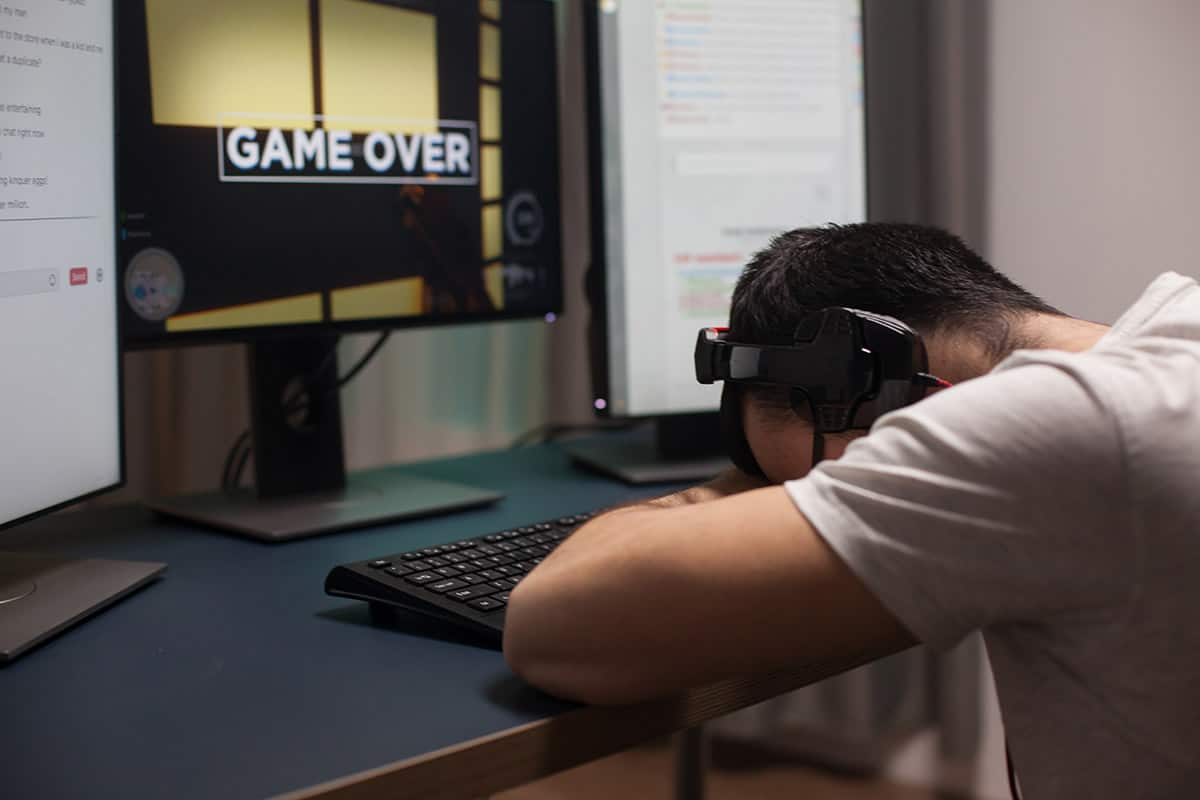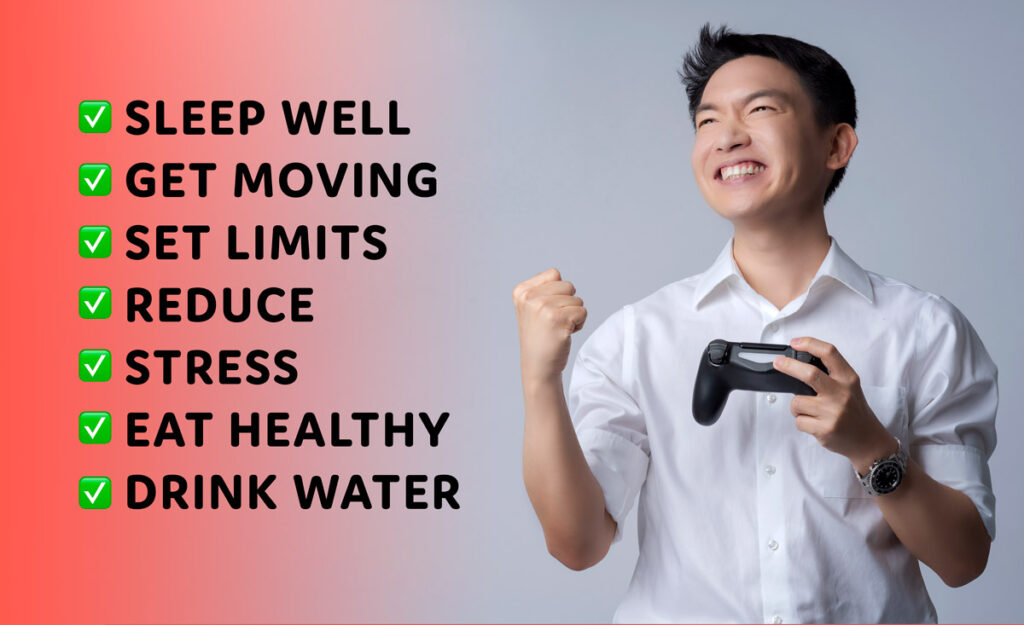
Gaming Fatigue and How to Combat It
Why do some gamers feel exhausted, irritable and emotionally drained after playing video games? They may be suffering from gaming fatigue which can be highly debilitating.
In this article, we look at what causes gaming fatigue and share some tips on how to combat gaming fatigue if you or someone you know are affected.
What is gaming fatigue?
Gaming fatigue – also known as gaming burnout – is more than overwhelming tiredness. It’s a heightened state of emotional, physical and mental exhaustion brought on by extreme and unrelenting stress.
So, who suffers from it? Gaming fatigue does not just affect high-profile streamers and professional esports players, it occurs across the gaming industry from amateur gamers to tournament organizers whose lives become consumed by video games.
What causes gaming fatigue?
Several factors can contribute to gaming fatigue – including insufficient sleep, poor diet and low mood – but the main cause is stress.
Many aspiring esports players put themselves under prolonged stress by engaging in marathon gaming sessions to try to make it in the industry. While professional esports athletes spend hours training each day to gain an advantage over their competitors.
Well-known streamers can experience sustained stress by hosting streams lasting for 12+ hours to attract more viewers and subscribers. That is not counting the time they spend posting content on social media channels and editing videos for YouTube.
Sometimes, amateur gamers are surprised that their energy levels are zapped. They ask: ‘Why do I feel sleepy after gaming?’ and ‘Can video games cause fatigue?’ But they are often juggling schoolwork or a demanding job as well as their hobby and this can cause gaming fatigue. The gameplay itself can also be stressful, especially if they are playing highly competitive MMO games.
How to combat gaming fatigue

To combat gaming fatigue follow healthy gaming habits. If you are feeling overwhelming tiredness, the most important thing to do is sleep. However, there are other types of self-care that can help too. Here are seven ways to combat gaming fatigue and restore your energy levels:
1. Sleep well
Many gamers do not get sufficient sleep and suffer the consequences. Irregular sleep patterns can have a negative effect on your mood, energy levels and immune system. Here are some tips for sleeping well:
- Take time to relax away from screens before bed.
- Go to bed and wake up at the same time each day.
- Try to sleep for eight uninterrupted hours a night.
- Do not get up in the night to game.
- Avoid naps during the day.
2. Get moving
If you are suffering from gaming fatigue, exercise is probably the last thing on your mind. But, getting active releases endorphins that will improve your physical and mental health, and help you sleep better.
Take regular breaks to move around and stretch while gaming, and make daily exercise a priority. Start with a small amount of movement – perhaps a 15-minute walk – then gradually build it up and find a sport or activity you enjoy. If your sedentary gaming lifestyle has made you overweight, exercise will also help you lose weight and feel more energetic.
3. Game less often
If you are suffering from gaming fatigue it might sound obvious to play less often but many gamers try to power on through. With new games launching all the time, don’t pressure yourself to try everything. Just play what interests you and stop when it starts to feel like a chore. Gaming a little less often and taking regular breaks can help alleviate stress and make the gaming sessions you do play more enjoyable.
4. Reduce stress
As gaming fatigue is linked to heightened and prolonged stress levels, introduce some relaxing activities into your daily life. These could include:
- Spending time outdoors.
- Doing yoga or tai chi.
- Taking a bath.
- Reading a book or magazine.
- Listening to music or a calming app.
- Spending time with friends and family.
Stress uses up lots of energy so whatever relaxes you will boost your energy levels.
5. Look after your mental health
Losing interest in activities that used to make you happy – such as playing video games – can be a symptom of anxiety or depression. These emotional issues are not always connected to gaming fatigue, but they can be an underlying cause. If you think your mental health is affecting your relationship with gaming – or impacting other areas of your life – it may be time to seek professional support. Counseling can help to combat fatigue caused by stress, anxiety or depression.
6. Eat healthily and stay hydrated
Many gamers develop unhealthy eating habits because it’s easy to grab some junk food rather than choose a healthy option. Sometimes you may feel tired because you are dehydrated. A good way to keep up your energy levels is to eat regular, healthy meals and avoid junk snacks. Stay hydrated with water and limit the amount of caffeine, alcohol and soda you drink.
7. Find other hobbies
If gaming is having a negative effect on your life, it’s probably time to look for other hobbies and interests. However, you may struggle to think of anything to fill the void. One of the first places to look for inspiration is the activities you enjoyed before your life became consumed by video games. What pursuits used to make you feel happy and fulfilled? You could also check out the Game Quitters hobby tool for ideas.
Get help to limit gaming harm

At Game Quitters, we are often approached about gaming fatigue by gamers and concerned parents.
If you or a loved one are showing gaming fatigue symptoms but cannot stop gaming, you may also be suffering from video game addiction.
Take our short video game addiction test to find out if you (or they) are gaming problematically.
We can help you or someone you care about break free from gaming addiction. Check out our specialist programs for gamers and parents:
Respawn is for gamers who want to quit gaming and improve their life.
Reclaim is to help families manage problematic gaming at home.
Take the first step and book a Gameplan call to discuss your situation with someone who understands problem gaming.
